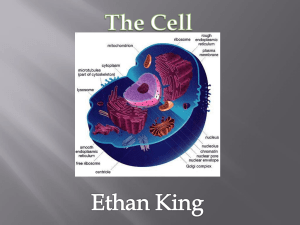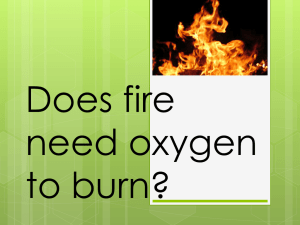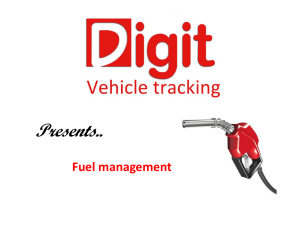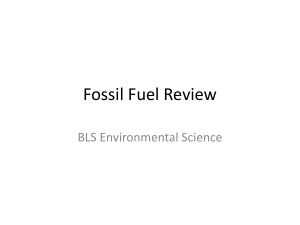Fuel Economy
advertisement
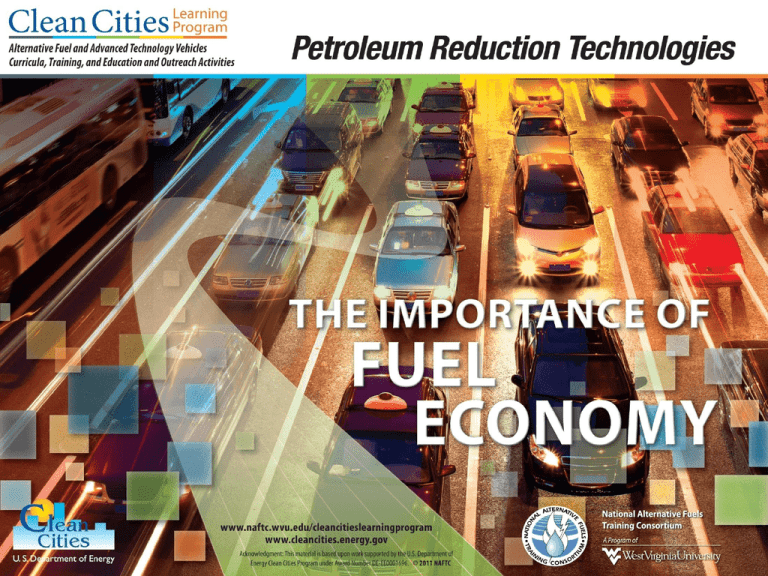
1 Objectives Describe why fuel economy must be considered Describe how fuel economy improvements may benefit health and the environment Explain the economic benefits of improved fuel economy Describe how fuel economy affects energy security Explain how to easily implement fuel economy strategies 2 Why Consider Fuel Economy? A measure of how efficiently a vehicle uses fuel Miles per gallon (MPG) Specific tests used to determine ratings Affected by vehicle design and operation Figure 1: Rising fuel prices. Source: NAFTC. 3 Technologies and strategies Many fuel saving strategies can be implemented at no cost Required vehicle maintenance Aftermarket products often do not work Driving habits Fuel economy of a vehicle not in motion is 0 MPG 4 What Affects Fuel Economy? Engine and vehicle design Fuel is used to create energy Road load equation shows where power is consumed Fuel consumption increases as engine power increases 5 Manufacturer Must meet emissions requirements and fuel economy requirement Advances in vehicle technology Transmission advances (i.e. CVT) Vehicle weight and size Vehicle aerodynamics Figure 2: Cutaway engine attached to a CVT. Source: Nissan Global. 6 Consumers Fuel economy is greatly affected by how the driver operates the vehicle Strategies to improve fuel economy Each strategy may contribute a small amount Figure 3: Body style changes in the already fuel efficient Prius has reduced its aerodynamic resistance at highway speeds. Source: NAFTC. 7 Information from the U.S. Department of Energy, Energy Efficiency and Renewable Energy (EERE) on fuel economy information can be found online at http://www.fueleconomy.gov/ or by phone at 1-877-377-3463. 8 Advantages of Fuel Economy Improvements Immediate fuel price savings Less petroleum consumption in the U.S. Research will create domestic job opportunities 9 Additional Points to Consider Purchasing more fuel efficient vehicles can become costly Strategies may not be applicable for heavyduty applications 10 Fuel Economy Benefits Fuel efficient vehicles offer many benefits Reduced petroleum consumption Far-reaching benefits 11 Health Benefits Decreased amounts of harmful emissions Emissions may lead to respiratory illness PM may be carcinogenic Efficient vehicles will produce fewer of these emissions 12 Environmental Benefits Fewer emissions Emissions may lead to the formation of smog and acid rain Fuel consumption goes up, CO2 emissions go up Decreased GHG emissions 13 Did You Know? The Federal Trade Commission has several tips for consumers to save money: • At the pump, check the owner’s manual for the most effective octane level • In the garage, stay up to date on maintenance of the vehicle • When shopping around, be skeptical about any gizmo that promises to improve gas mileage 14 Economic Benefits Higher efficiency = lower fuel costs Many strategies can be implemented at no charge to the driver Government mandated emissions and fuel economy standards 15 To calculate fuel costs and compare savings for two vehicles, take a look at: http://www.fueleconomy.gov/feg/savemoney.shtml 16 Energy Security Benefits About half of all oil consumed in the U.S. is imported Stimulates economies outside of the U.S. Reduced dependence on foreign oil 17 Fuel Economy – Today and Tomorrow EPA tracks emissions for all vehicles CAFE regulations Fuel economy of vehicle’s today is about 72% higher compared to 1975 Increased standards put in place by the Obama administration 18 The Future of Fuel Economy Target economies of 35.5 MPG by 2016 and 54.5 MPG by 2025 Advances in vehicle technologies HEVs and EVs Price and availability limitations 19 Suggested Actions Slow down Tire pressure Weight Air conditioning Rerouting Maintenance Figure 4: Proper tire inflation instructions. Source: fueleconomy.gov. 20 After completing this material, can you: Describe why fuel economy must be considered? Describe how fuel economy improvements may benefit health and the environment? Explain the economic benefits of improved fuel economy? Describe how fuel economy affects energy security? Explain how to easily implement fuel economy strategies? 21 Test Your Knowledge 1. True or False: The fuel economy of a conventional vehicle idling while it sits in traffic is 0 mpg. 2. How much has the average fuel economy increased since 1975? 3. Increase in fuel consumption leads to a direct increase in __________ emissions. 4. True or False: General maintenance such as changing air filters and fuel filters do not benefit fuel economy. 22

